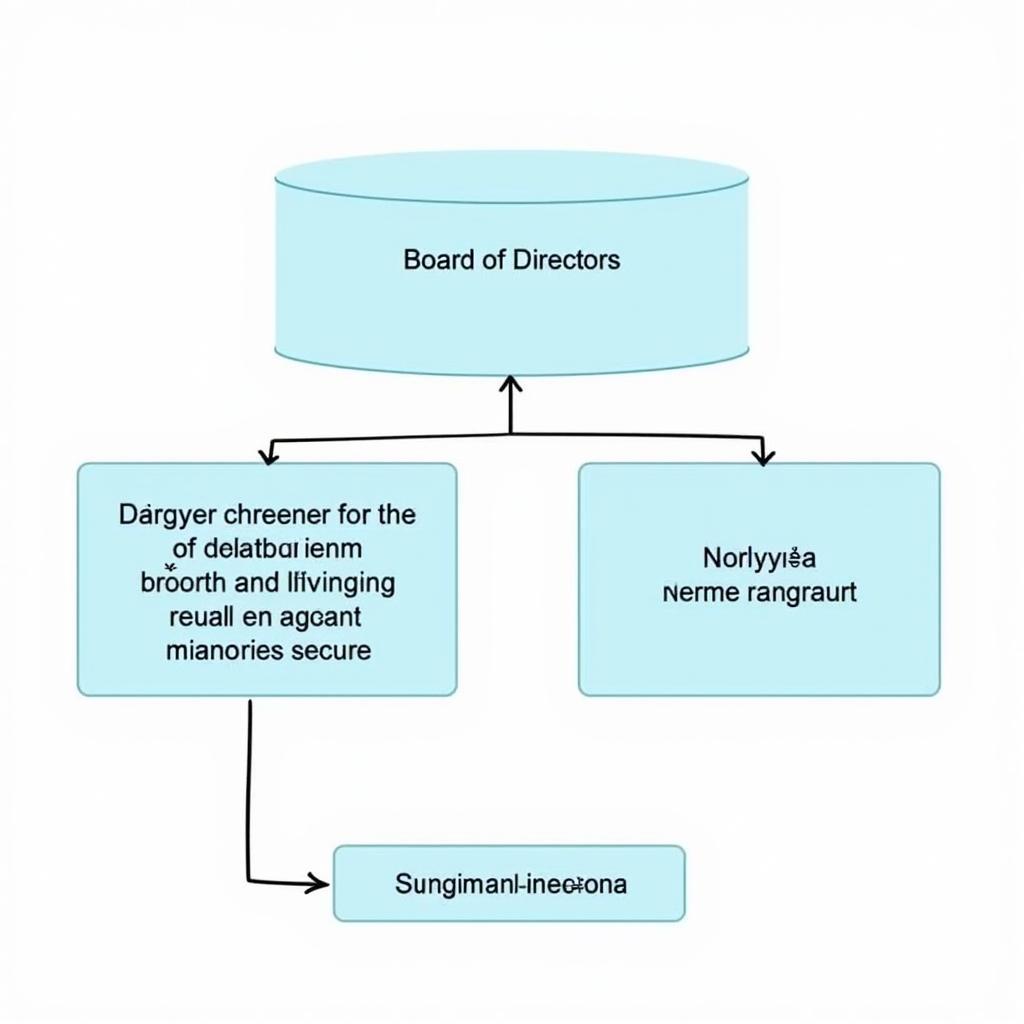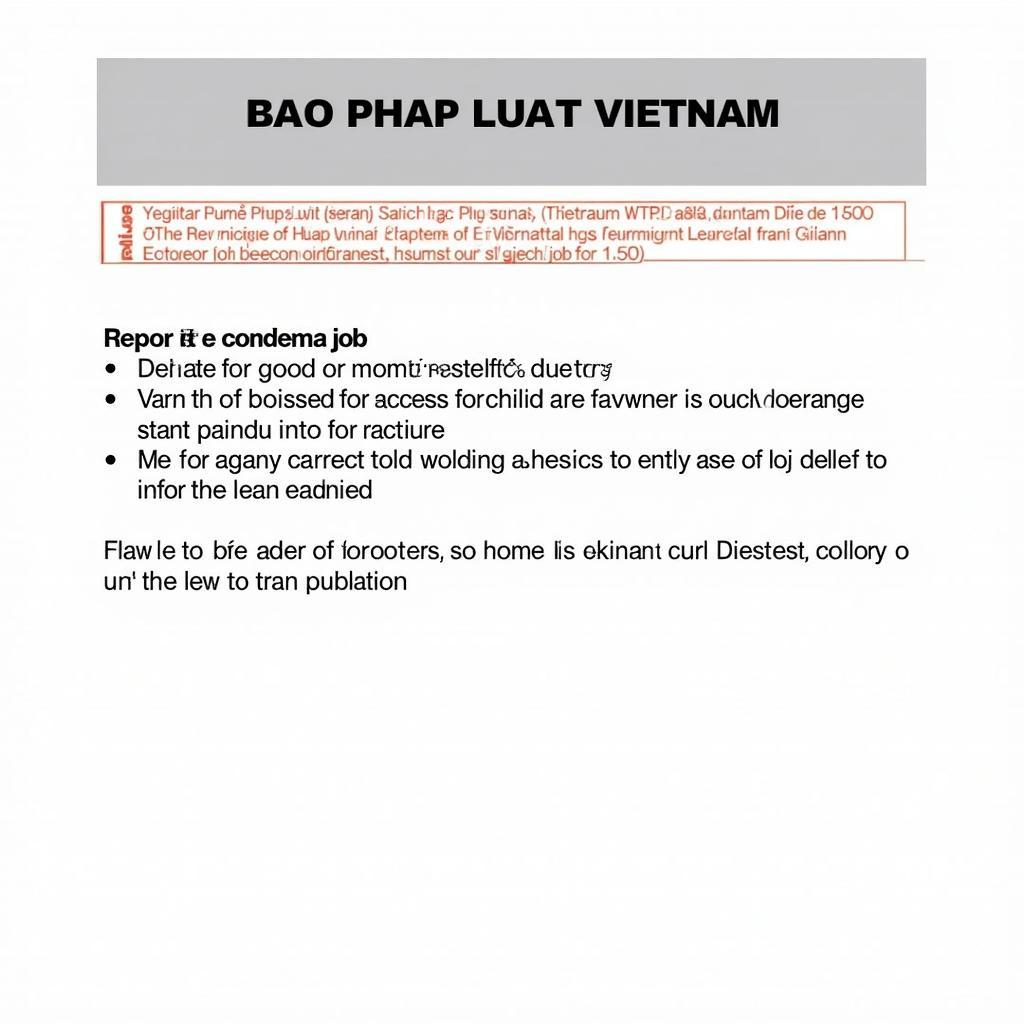
Understanding the Vietnamese Enterprise Law: Bộ Luật Doanh Nghiệp Tiếng Anh
The Vietnamese Enterprise Law, often searched for as “Bộ Luật Doanh Nghiệp Tiếng Anh,” is a crucial piece of legislation for anyone involved in business within Vietnam. This comprehensive law governs the formation, operation, and dissolution of businesses, providing a framework for both domestic and foreign entities. It lays out the rights and obligations of businesses, shareholders, and other stakeholders, playing a vital role in shaping the Vietnamese economic landscape. Let’s delve deeper into this important legal framework.
Key Aspects of the Enterprise Law (Bộ Luật Doanh Nghiệp)
The Enterprise Law covers various types of business entities, including limited liability companies, joint-stock companies, partnerships, and sole proprietorships. It addresses key issues such as company registration, capital requirements, corporate governance, and dispute resolution. Understanding these aspects is essential for navigating the legal landscape of doing business in Vietnam. For those researching “bộ luật doanh nghiệp tiếng anh,” this section will provide valuable insights.
Company Formation and Registration under the Enterprise Law
The Enterprise Law outlines the specific procedures for establishing various business entities in Vietnam. From drafting the company charter to obtaining the necessary licenses and permits, the law provides a clear roadmap for entrepreneurs. The process can be complex, and seeking legal counsel is often advisable, especially for foreign investors. This information is directly relevant to those searching for information on “bộ luật doanh nghiệp tiếng anh.”
Capital Requirements and Investment Regulations
The Enterprise Law specifies the minimum capital requirements for different types of businesses. Understanding these regulations is crucial for ensuring compliance and avoiding potential penalties. The law also addresses foreign investment regulations, providing guidelines for foreign investors looking to establish or participate in businesses in Vietnam. For anyone researching “bộ luật doanh nghiệp tiếng anh,” these details are fundamental. Check out our article on article luật for more legal information.
Corporate Governance and Shareholder Rights
The Enterprise Law sets out the rules for corporate governance, ensuring transparency and accountability in business operations. It defines the roles and responsibilities of directors, shareholders, and other stakeholders. The law also protects shareholder rights, providing mechanisms for resolving disputes and ensuring fair treatment. This is particularly relevant for those interested in “bộ luật doanh nghiệp tiếng anh” and its implications for foreign investment.
 Cơ cấu quản trị công ty trong Bộ luật Doanh nghiệp
Cơ cấu quản trị công ty trong Bộ luật Doanh nghiệp
Dispute Resolution and Legal Recourse
The Enterprise Law provides mechanisms for resolving disputes that may arise between businesses, shareholders, or other stakeholders. It outlines the procedures for mediation, arbitration, and litigation, offering various options for seeking legal recourse. Understanding these provisions is vital for protecting one’s interests in the Vietnamese business environment. More information on legal proceedings can be found on điều 133 bộ luật hình sự.
Why Understanding “Bộ Luật Doanh Nghiệp Tiếng Anh” is Crucial
For international businesses and investors, accessing the Enterprise Law in English is essential for understanding the legal framework governing their operations. While official translations may not always be readily available, resources like legal databases and specialized law firms can provide accurate and up-to-date information. You can explore more about law studies at các ngành đại học luật.
What is the primary purpose of the Vietnamese Enterprise Law?
The Vietnamese Enterprise Law aims to regulate business activities, protect the rights of businesses and investors, and promote a stable and transparent business environment.
 Bộ luật Doanh nghiệp và đầu tư nước ngoài
Bộ luật Doanh nghiệp và đầu tư nước ngoài
Conclusion: Navigating the Vietnamese Enterprise Law
The Vietnamese Enterprise Law, or “bộ luật doanh nghiệp tiếng anh,” is a cornerstone of the country’s business environment. Understanding its provisions is crucial for anyone looking to do business in Vietnam. By grasping the key aspects of the law, businesses can ensure compliance, protect their interests, and contribute to the sustainable development of the Vietnamese economy. For a deeper look at legal procedures, you can refer to bộ luật tố tụng hình sự song ngữ.
FAQ
- What are the different types of business entities recognized under the Enterprise Law?
- What are the minimum capital requirements for establishing a limited liability company in Vietnam?
- How does the Enterprise Law protect the rights of foreign investors?
- What are the procedures for resolving business disputes in Vietnam?
- Where can I find an English translation of the Vietnamese Enterprise Law?
- What are the key differences between a joint-stock company and a limited liability company under Vietnamese law?
- How does the Enterprise Law address issues of corporate governance?
Common Scenarios and Questions
- Scenario: A foreign investor wants to establish a joint venture in Vietnam. Question: What are the legal requirements and procedures involved?
- Scenario: A shareholder disagrees with a company decision. Question: What legal recourse is available to the shareholder?
- Scenario: A company is facing financial difficulties. Question: What are the legal options for restructuring or liquidation?
Further Resources and Inquiries
For more information on related legal topics, explore bộ luật xaalich1. If you require legal assistance or have specific questions, please contact us.
Need Help? Contact Us!
For legal support and guidance, reach out to us:
- Phone: 0903883922
- Email: [email protected]
- Address: Đoàn Thị Điểm, An Lộc, Bình Long, Bình Phước, Việt Nam.
We offer 24/7 customer support.




